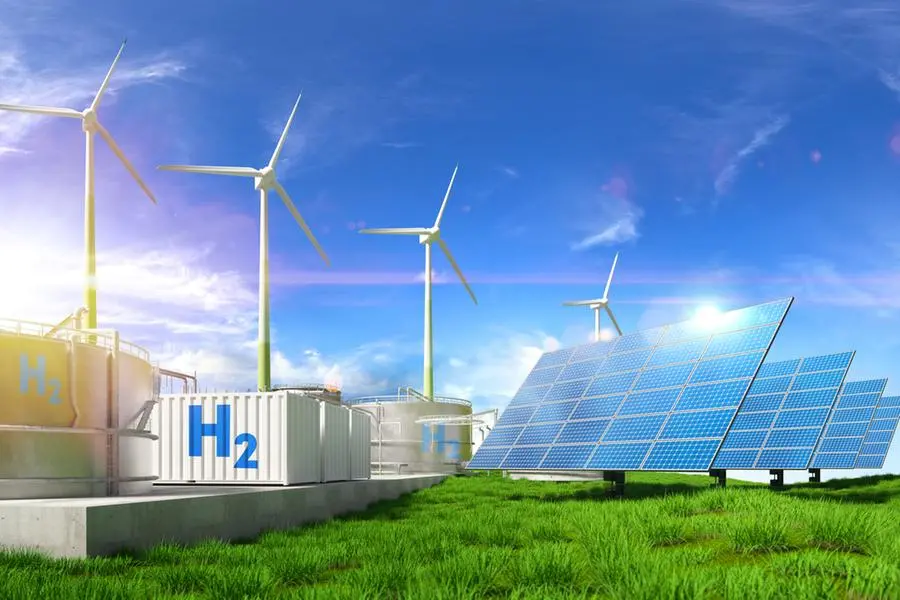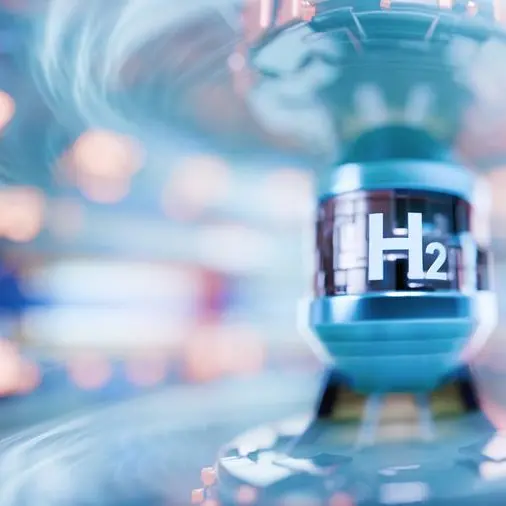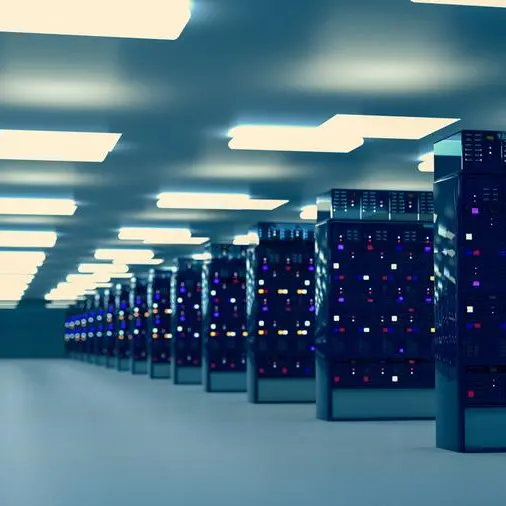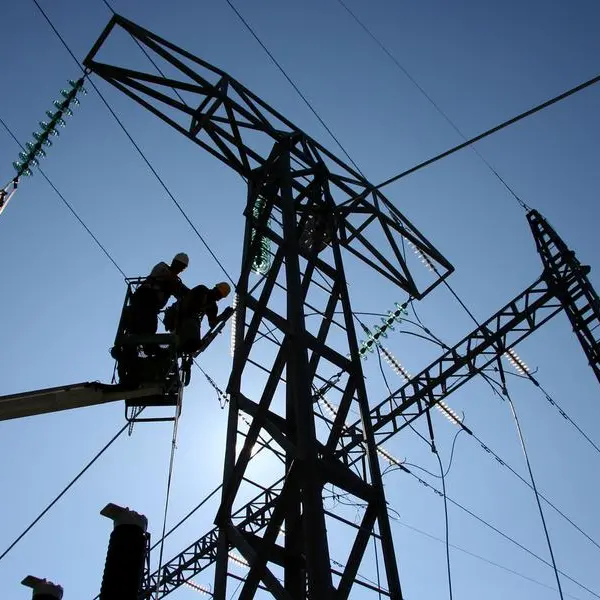PHOTO
Celebrating the World Energy Day, which was adopted during the 2012 World Energy Forum in Dubai, holds special importance in the Year of Sustainability in the UAE, when the country will host the United Nations Framework Convention on Climate Change (COP 28), at Expo City Dubai from 30 November to 12 December 2023.
His Highness Sheikh Mohammed bin Rashid Al Maktoum, Vice President and Prime Minister of the UAE and Ruler of Dubai, endorsed the World Energy Day initiative during the 2012 World Energy Forum in Dubai, along with representatives of 54 countries, in addition to the United Nations, the Arab League and the African Union Commission. Through the ‘Dubai Declaration - Energy for All’, all stakeholders agreed to observe World Energy Day on 22 October annually.
“Clean energy stands as a paramount pillar of sustainability and takes centre stage in the UAE’s strategic priorities and directions, guided by the visionary leadership of His Highness Sheikh Mohamed bin Zayed Al Nahyan, President of the UAE; and His Highness Sheikh Mohammed bin Rashid Al Maktoum, Vice President and Prime Minister of the UAE and Ruler of Dubai. The UAE has assumed a pioneering role on the global stage, leading the way in clean and renewable energy through dedicated strategies and substantial investments that bolster sustainable development while enhancing the efficiency of energy production and use. This dual approach not only fosters economic growth but also protects the environment, thereby effectively addressing the challenges of climate change. World Energy Day, inaugurated by the UAE in 2012, gains added significance this year as we prepare to host COP28, the international conference where nations worldwide will unite to craft tangible solutions for mitigating the impacts of climate change and achieving comprehensive and sustainable development,” said H.H. Sheikh Ahmed bin Saeed Al Maktoum, Chairman of the Dubai Supreme Council of Energy.
Suhail Al Mazrouei: The UAE has future plans to diversify energy sources
“The UAE has developed a set of future plans aimed at diversifying energy sources and shifting towards clean ones, especially nuclear power. The operation of Barakah peaceful nuclear power plant supports the efforts to shift towards clean energy in the UAE. This is a big step towards ensuring energy sustainability, diversification and security for decades to come,” said Suhail Al Mazrouei, Minister of Energy and Infrastructure.
“On World Energy Day 2023, the UAE reiterates its commitment to following a long-term plan for the future of energy and reducing its emissions. We recently updated the UAE Energy Strategy 2050 to increase the efficiency of energy use by individuals and organisations by 42% - 45% compared to 2019. The strategy also seeks to triple the share of renewable energy by 2030 and raise the contribution of installed capacity of clean energy to 30% of the total energy mix by 2030. Moreover, it aims to achieve financial savings of AED 100 billion and channel AED 150-200 billion to national investments by 2030 to meet the energy demand and sustain the UAE’s economic growth,” added Al Mazrouei.
“Clean energy is a key pillar of sustainability and stands at the forefront of the UAE’s strategic priorities, especially considering that the UAE is a global leader in leveraging innovative climate change mitigation and adaptation solutions,” added Al Mazrouei.
Saeed Al Tayer: World Energy Day is an opportunity to highlight the need to increase the share of clean and renewable energy
Saeed Mohammed Al Tayer, Vice Chairman of the Dubai Supreme Council of Energy and MD & CEO of Dubai Electricity and Water Authority (DEWA), emphasised that World Energy Day is an opportunity to highlight the need to increase the share of clean and renewable energy in the energy mix. This contributes to accelerating climate action, preserving natural resources, and supporting global efforts to reduce emissions that cause climate change, ensuring a sustainable future for the current and future generations.
“Celebrating World Energy Day is especially significant in the UAE during the Year of Sustainability as the country is gearing up to host COP 28 at Expo City Dubai. We must galvanise global efforts to develop policies that support sustainable development and help in overcoming current and future challenges in the energy sector. We must also accelerate the transition to clean and renewable energy sources to protect the environment, reduce carbon emissions, and preserve our precious natural resources. In Dubai, we have adopted a clear strategy to transform the Emirate into a global hub for clean energy and a green economy. This is achieved through pioneering projects that support the Dubai Clean Energy Strategy 2050 and the Dubai Net Zero Carbon Emissions Strategy 2050 to provide 100% of the energy production capacity from clean energy sources by 2050. One of the key projects that contribute to achieving this strategy is the Mohammed bin Rashid Al Maktoum Solar Park, the largest single-site solar park in the world, using the Independent Power Producer (IPP) model. It has a planned production capacity of 5,000 megawatts (MW) by 2030 using solar photovoltaic panels and concentrated solar power with total investments totalling AED 50 billion,” added Al Tayer.
Ahmed Al Muhairbi: On World Energy Day, we celebrate Dubai’s accomplishments in clean energy
“On World Energy Day, we celebrate Dubai’s accomplishments in clean energy and the technologies, solutions, and programmes that support the reduction of carbon emissions. These also pave the way for realising the Emirate’s goal to provide 100% of Dubai’s total power capacity from clean energy sources by 2050,” said Ahmed Buti Al Muhairbi, Secretary General of the Dubai Supreme Council of Energy.
Othman Al Ali: World Energy Day is a significant initiative promoting the conservation of our precious natural resources
“World Energy Day is a significant initiative for promoting the conservation of our precious natural resources and reducing carbon emissions to pave the way for a sustainable future. This year, World Energy Day coincides with the UAE gearing up to host COP28, bringing together world leaders, global experts and decision-makers, to actively tackle climate change. EWEC is at the forefront of the UAE’s energy transition, driving the decarbonisation of the energy sector by commissioning and deploying transformative technologies that will meet the target of generating 60 per cent of Abu Dhabi’s total power demand from renewable and clean energy sources by 2035, and actively contributing to the realisation of the UAE Net Zero by 2050 strategic initiative,” said Othman Al Ali, CEO of Emirates Electricity and Water Company (EWEC).
“EWEC is leading by example, pursuing strategies that are accelerating the pace of the energy transition, including the commissioning and development of four of the world’s largest single-site solar power plants, and the world’s largest reverse osmosis water desalination plant. EWEC takes pride in being a role model for integrating low-carbon energy into the grid, helping the country lead the global conversation on sustainability and carbon neutrality,” added Al Ali.
Yousif Al Ali, CEO of Etihad Water and Electricity Company (EtihadWE), stated that the UAE, under the wise leadership represented by His Highness Sheikh Mohamed bin Zayed Al Nahyan, President of the UAE, and the visionary government led by His Highness Sheikh Mohammed bin Rashid Al Maktoum, Vice President and Prime Minister of the UAE and Ruler of Dubai, recognises that clean and renewable energy is a fundamental pillar for a nation’s development. It is an urgent necessity for its economy’s growth and its community’s sustainability. That’s why the UAE was among the pioneers in adopting a qualitative energy strategy and laying a solid foundation for developing this sector.
Al Ali emphasised the company’s commitment to support national efforts to enhance the efficiency of energy production and management, achieve the targets of the Energy Strategy and the UAE Net Zero by 2050 strategic initiative, and contribute effectively to establishing the UAE’s leading position globally in these vital sectors. This is achieved through the utilisation of advanced technologies in managing and harnessing energy consumed in desalination, as well as the phased implementation of the ambitious project “Global Market for Electric Vehicles” in the northern Emirates. The project is considered one of the most important infrastructure projects geared towards increasing reliance on clean energy in the transportation sector. Furthermore, he highlighted the company’s efforts in energy resource management and fostering a culture of consumption rationalisation, representing a significant societal factor in resource allocation, carbon emissions reduction, and environmental burden mitigation.





















